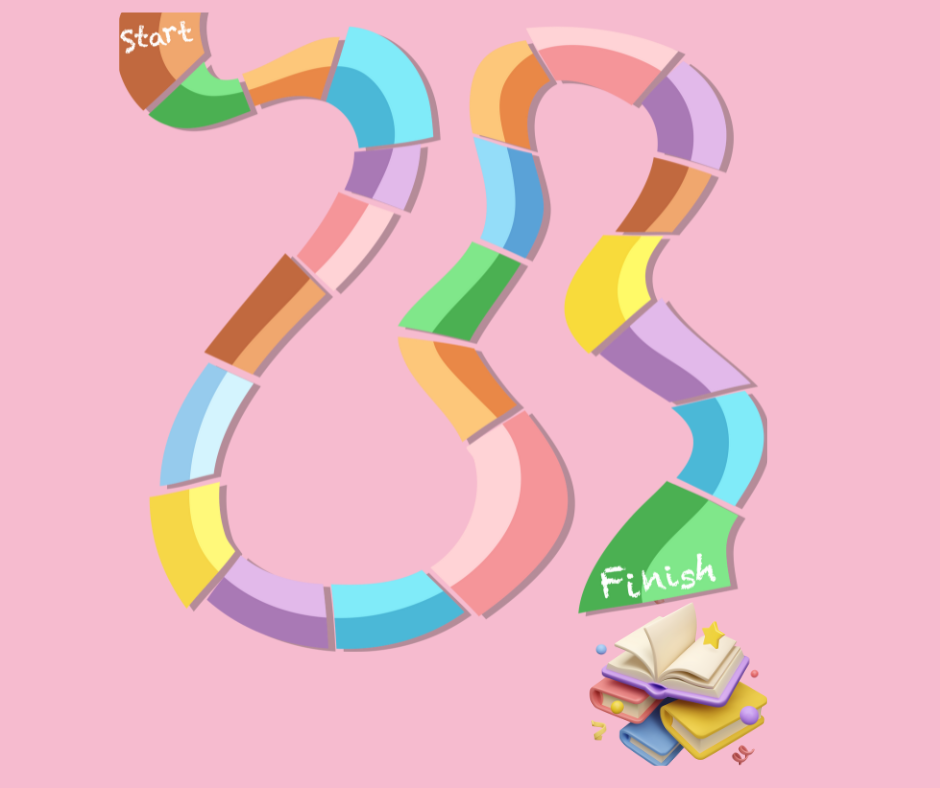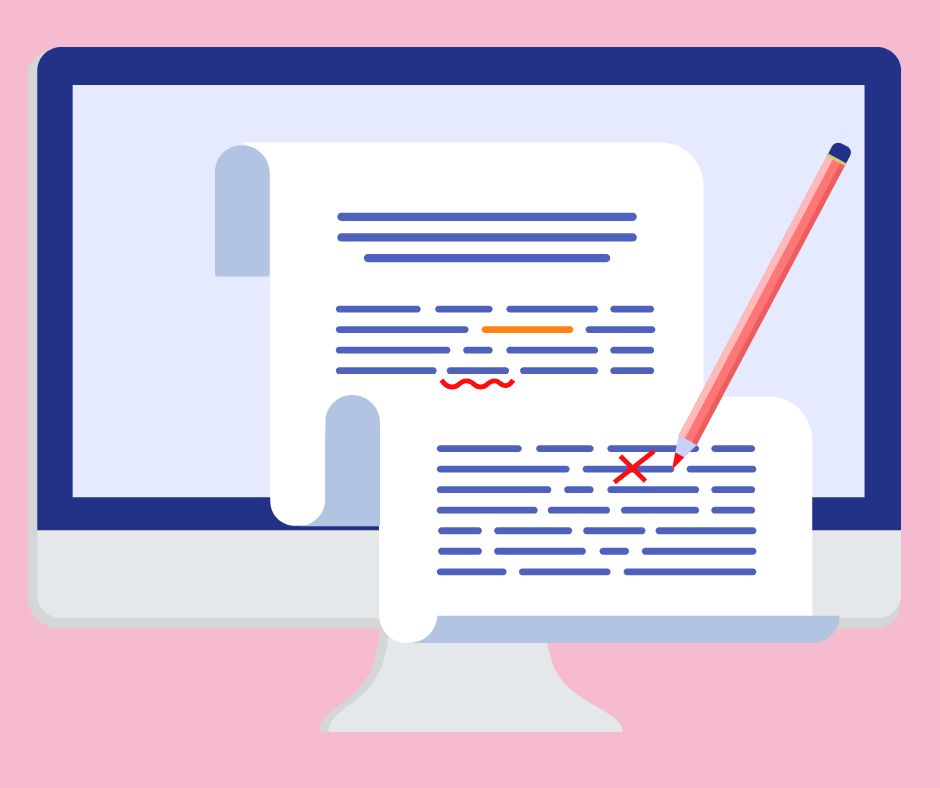Romance Author Guide to Getting an Agent

Table of Contents
Once you’ve written your book, your next step is publishing. First you need to decide if you want to self-publish or traditionally publish. If you decide to find a traditional publisher, then you should consider getting a literary agent. While not always necessary, there are benefits to having an agent.
A literary agent doesn’t just submit to and negotiate with publishers to sell your book rights. They can also:
- Negotiate audio (if you indie published your book in print/ebook or your traditional publisher didn’t ask for audio rights). For example, I sold (as my own agent) audio rights to my indie published romance series.
- Negotiate other rights, including foreign rights and TV/movie deals.
- Help you improve your manuscript based on what they know publishers are looking for
- Be a buffer between you and your editor (trust me, this can be invaluable if you’re having challenges with your editor)
- Guide you through the business side of publishing so you can spend more time writing
One of the biggest benefits is that agents have contacts and established relationships with editors at publishing companies. While some publishers will take unsolicited manuscripts from authors, editors often prefer agented books because they’ve already been vetted. Further, in large publishing houses, there could be several editors for the romance genre, and an agent can know which editor is best for your book (you can’t pitch all editors at a single publisher.)
The process of finding an agent can feel overwhelming, especially with so many rules, rejections, and unknowns. But it can be done.
BTW…much of what I’m sharing here is based on my experience in pitching and getting an agent, as well as working as an agent.
Here are the steps to get a literary agent to sell your romance novel:
Get Your Manuscript Ready
Before you even think about querying an agent, your manuscript needs to be complete. By complete, I mean revised and edited. I’ve spoken to writers who say, “Agents or editors are going to edit my book, so it’s good enough.” Good enough isn’t good enough when you’re competing with hundreds of other manuscripts. Consider that agents work with authors for a year or two before they’re ever paid for their efforts (agents only get paid when authors do). Agents want top quality manuscripts that need minimal work so they can get them out and sold faster.
Finish Your Novel: While it might seem obvious, agents will not consider unfinished manuscripts from debut authors. Your story should have a satisfying arc, fully developed characters, and, of course, that all-important happily ever after (or happy for now) ending that romance readers expect.
Revise Your Novel: Once your draft is complete, it’s time to revise and revise again. This is where a good freelance editor can be worth their weight in gold. If hiring an editor isn’t in your budget, consider joining a critique group, ideally one focused on romance. Fellow romance writers can help you catch pacing issues, strengthen emotional beats, and refine your use of genre tropes. A tool like Autocrit can also help you find pacing and craft issues in your manuscript.
Format Your Novel: Most agents have formatting guidelines that you should follow. In most cases, agents expect the following formatting:
- Times New Roman in 12 pt font
- Double-spaced
- 1-inch margins on all sides.
- Chapters starting on a new page using the Page Break function, not section break
- Chapter titles centered at the top of the page
Know Your Book: You’d be surprised how many submissions I received that were pitched as romances that weren’t actually romances. Some were women’s fiction. Others were stories that had a romantic element. It’s important that your romance fit the expectations of the romance genre (the main plot of the story is the romantic relationship between characters).
Further, you need to know your category and tropes. Is it a steamy contemporary billionaire romance? A sweet small-town friends-to-lovers story? A time-traveling historical with magical elements? Knowing how to categorize your book helps agents determine if it fits their list and helps you pitch it more effectively.
Tip: Find authors and books that are similar to your book. It can help agents understand your book if you can compare it to a similar author or book.
Research Literary Agents Who Represent Romance
Don’t underestimate how important this step is. Getting your manuscript to the right agent saves you time and rejections. Remember how I said people pitched me books that weren’t technically romances? I ended up saying no and that’s no fun for either of us.
But you also have to consider what types of romances the agent represents. Not every agent represents every subgenre, so doing your homework now can save you time and increase your chances of success. I didn’t represent historical romances. Some might not represent dark romance. I knew an agent once who didn’t like books in first person point of view.
As you research agents, read carefully what they say they represent and look at the books and authors they’ve already represented.
Start with tried-and-true resources like:
- Talk to other authors. I got my last agent by talking to authors in my writing organization. This helped because when I emailed her, I could say, “Sally Author recommended I contact you…”
- QueryTracker: A free (or paid) database where you can search for agents by genre, track your submissions, and read other authors’ comments on response times and feedback.
- Manuscript Wish List (MSWL): A site where agents and editors list exactly what they’re looking for, including subgenres, tropes, and themes. You can search by genre, agent, or keyword.
- Publishers Marketplace: A paid resource where you can see recent deals made by agents. This is useful for identifying who is selling romance and which publishers they work with. I highly recommend paying the $25 for a month of access and researching what agents are representing the type of book you’ve written and what publisher they’ve sold too. You can cancel after a month.
- Twitter/X Hashtags: Search hashtags like #MSWL, #AmQuerying, and #QueryTips to find agents posting real-time updates on what they’re seeking. Many agents tweet wish list items or open periods for submissions.

When reviewing an agent’s profile or wish list, look for signs that they’re passionate about romance. Do they mention specific tropes you use (like grumpy/sunshine, enemies to lovers, or fake dating)? Do they represent authors whose books feel similar in tone or style to yours?
Don’t think you can squeak your manuscript into a genre that it’s really not in. For example, I represented romance and romantic mysteries, but not women’s fiction or cozy mysteries. The latter two might have romance elements in the book, but they’re not romances. Again, this is where knowing your book is very helpful.
Create a spreadsheet or use a tracking tool to stay organized. The Romance Authors Novel Organizer includes tracking for agent submissions. Include columns for the agent’s name, agency, submission guidelines, what they’re looking for, date submitted, response received, and any notes (like personal preferences or previous communication). This will help you avoid duplicate submissions and allow you to follow up professionally if needed.
Research might feel tedious, but it’s a crucial step in targeting your query to the agents who already love the kind of stories you’re writing.
Write a Synopsis of Your Romance
Personally, I find writing a synopsis almost the worst part (taglines are the worst!). Condensing your 70,000 word book down to two pages is not easy. But it’s necessary to sell romance fiction. Check out this post on writing a synopsis, but here are the basics:
1. Write the synopsis using the same tone and style of the book. If it’s a dark romance synopsis needs to convey that.
2. Get right to the meat of the story. Don’t get bogged down in the setup.
3. Include character descriptions, motivations, conflict and goals as part of telling the story.
4. Stick to the key plot points. Provide the major thrust of the story and don’t worry about subplots.
5. Focus on the main conflict and how it’s resolved.
6. Provide the full story arc (beginning, middle, and end). Leaving off the ending won’t entice an agent to contact you to learn how the story ends. If you send a synopsis without the ending, it will be rejected as it suggests you don’t know how to write a full story.
7. Use strong, active verbs.
8. Write in the present tense.
9. Polish and edit until it’s tight and compelling.
Again, check out this post on writing a synopsis for more details and tips.
Prepare the First Three Chapters
Most agents will ask for a synopsis and either the first 3 chapters or sometimes a specific word count, such as the first 5,000 words. Note that they always ask for the “First” chapters or words. If you want to send later chapters because you think they’re better, then your book isn’t ready for submission. Readers always start at page one and may or may not have the patience to wait until page 20 for the book to get good. Your book needs to start off strong from the first line and keep readers engaged. If you don’t feel your opening chapters are good enough, then you need to fix or perhaps delete them (maybe your book starts later).
In a romance, your first three chapters should introduce your characters, their goals, the conflict, and the inciting event that thrusts them into the story. Your meet-cute should occur within these chapters as well. Personally, I wouldn’t accept a romance novel in which my characters weren’t together on the page within the first three chapters. Why? Because a romance is all about the characters’ relationship, so I need to see the tension and conflict between them on the page.
Make your opening page the best it can be. You have about half a page, maybe a full page, to grab the agent’s interest. Then you want to hold on to it for the rest of the three chapters.
Potential problems:
- Avoid prologues. There are agents who won’t consider a book with a prologue.
- Avoid info dumping backstory in the opening chapter. Backstory should always be woven in through the actions and thoughts of the character.
- Avoid too much set up. While the opening of a book is often “normal life,” readers want things to start happening ASAP. Large amounts of exposition in the beginning are boring. Get to the good parts of the story quickly.
Format the chapters per the agent’s guidelines. If the agent doesn’t provide formatting guidelines, use New Times Roman 12 pt font, one-inch margins on all sides, and double space. (See formatting your book above).
Write the Query Letter
Your query letter is a short, compelling pitch that makes an agent want to read more. Think of it as the back cover blurb of your book, paired with a quick introduction to who you are as an author. In just a few paragraphs, you need to hook the agent, summarize your story, and share a bit about yourself.
Whenever possible, personalize your query to the agent. Mention if you’re reaching out because they’re looking for a specific trope or subgenre you write. This shows you’ve done your research and aren’t just sending a mass email.
Tone matters, especially in romance. While your query should be professional and error-free, don’t be afraid to let your voice shine through. If your book is fun and flirty, a bit of wit is welcome. If it’s emotional and angsty, your query should reflect that too.
Query Outline
- Address the agent by name, e.g. Dear Ms. Smith
- Hook agent/publisher immediately
- Provide book genre, word count, and a BRIEF plot or book summary. Also if this book is part of a series, provide a BRIEF (line 1 line or 2) summary of the other books
- Indicate the target market (This is where sharing the authors/books that are similar to yours can help)
- Tell the agent about you
- Offer brief overview on how you’ll market the book
- Let the agent know what you’ve attached
- End with a thank you and closing
- Read and re-read before hitting send
Sample Query
Note that this is a sample using one of my books, but it’s not a “real” query that I sent out. Also, FYI…103,000 words is too long for a romance. Not sure how I got away with that one, but the following books are shorter, the 60,000 to 70,000 range. This is just a sample of what a query looks like.
— Start Sample Query–
Dear Ms. Smith,
He tastes like chocolate and sin, but is he a murderer?
Tess Madison walked away from her two-timing fiancé, a multi-million dollar trust fund and a cushy corporate law job to pursue the single life indulging in chocolate and fancy French underwear. But when she finds a dead body at a dinner party, she’s pulled into a murder case that pits her wannabe-boyfriend detective friend against Jack Valentine, a sexy, charming man from her past and the prime suspect. Tess doesn’t believe Jack’s guilty, and despite her better judgment, she agrees to represent him. As secrets unravel and sparks fly, Tess must decide if risking her career and her heart for Jack is worth it.
Deadly Valentine is a 103,000 word romantic mystery and the first book of a proposed series featuring sleuthing couple Tess Madison, a French lingerie connoisseur and Jack Valentine, her handsome, self-made billionaire love interest.
Future books in the series include:
- Old Flames Never Die: Can new love survive the lure of an old flame and murder?
- With This This Ring, I Thee Kill: Planning a wedding is murder.
The Valentine Mysteries have the lightness of cozy mysteries with the steam of a romance. Think modern day Nick and Nora Charles or Jonathan and Jennfer Hart, but with open door spice. Comparable books would be:
- Darynda Jones’ Charley Davidson Grim Reaper Series (except without the paranormal)
- Marie Force’s Fatal and First Family Series (except lighter in tone)
I’m Jenna Harte and am the author of the cozy Sophie Parker Coupon Mystery series (Camel Press) and the Southern Heat (1st Ed. Penner Publishing) contemporary romance series. I own and manage an online romance author community at WritewithHarte.com. When I’m not writing my own stories, I work by day as a romance ghostwriter, having penned over 80 romance books in the last 6 years.
To help promote Deadly Valentine and subsequent books, I have a website, weekly email newsletter, and social media platforms where I’m building my reader community. Launch efforts will focus on obtaining advanced reviews and connecting with book influencers. Continued marketing will be done through my author platform and outreach activities, such as in-person or virtual events and podcasts.
I’ve attached the synopsis and the first three chapters per your posted guidelines.
Thank you for your consideration. I look forward to hearing your response.
Sincerely,
Jenna Harte
(Contact info)
–End Query Sample–
Follow the Guidelines on the Agent’s Website
The biggest surprise I had as an agent is the number of writers who did not follow the guidelines for submission. It was mind-boggling to me how many writers couldn’t be bothered to read and follow them.
Consider this: Agents have hundreds of queries to work through. They need a quick way to work through and weed out the duds. One such way is to reject the ones that don’t follow the guidelines.
That might sound harsh, but think about what it says to an agent when a writer doesn’t follow the instructions. It says that writer doesn’t care or know how to follow a set of guidelines. (Bad first impression). The publishing process is a long one with many hoops to jump through. A writer who off the bat indicates they have trouble following instructions is going to make an agent pause. Remember, they don’t get paid until you do, so one consideration they have is how much work will you be. No agent wants to work with a writer who is going to make the process harder by not doing what needs to be done to get their book sold and published.
So…Follow the guidelines!! Send agents what they ask for, no more, no less.
TIP: I recommend not submitting to all your agents at the same time. Submit in batches. This way, you can assess responses or lack of response, and tweak future submissions if needed.
Prepare for Responses
Once your queries are out in the world, it’s time to settle in and wait, but also to understand what those responses might look like. Literary agents receive hundreds of queries each month, and response times can vary widely. Some will reply in days, while others may take weeks or even a few months. They may tell you the expected response time on their website. Note this in your spreadsheet or notes. Do not nudge agents before this time UNLESS you get an offer or representation from another agent.
Here are the most common types of responses you might receive:
- Form Rejection: A standard, often impersonal response. It usually reads something like, “This isn’t the right fit for me, but thank you for submitting.” These are common and not necessarily a reflection of your talent. It simply means the story didn’t resonate with that particular agent.
- Personalized Rejection: A rejection that includes specific feedback. If an agent takes time to point out something they liked or a reason they passed, take note. Personalized rejections are not as common and are a good sign that writing stood out, even if it wasn’t the right match.
- Partial Request: The agent wants to read more, often the first 50 pages or a few chapters (This is most common if the guidelines haven’t already asked for the first few chapters). This is a promising step! Make sure your manuscript is polished and formatted correctly before sending.
- Full Request: The agent wants to read the entire manuscript. Celebrate this milestone! It means your query and sample pages did their job.
If you receive feedback, especially the same note from multiple agents (e.g., pacing issues, lack of emotional depth, unclear stakes), consider revising. Constructive feedback is gold and can help you get closer to that coveted offer of representation.
If you get only form rejections, check that you’re following the guidelines and consider revising your query and/or synopsis to make them standout. This is why you submit in batches. It gives you the chance to improve your query, synopsis, and manuscript and submit to more agents.
Throughout the process, try not to obsessively refresh your inbox. Keep working on your next project or revising other stories.
When an Agent Calls
If you get an email in which the agent asks to call you (many Zoom or video call now), this is a good sign that they’re interest in representing you. It can be nerve-wracking, but remember, you’re interviewing them as much as they’re interviewing you. This conversation isn’t just about getting answers, it’s about getting a feel for their enthusiasm for your work, their vision for your career, and whether your personalities mesh. An agent-author relationship is a long-term partnership, and you want to make sure it’s built on trust and clear communication.
What to expect on the call…
I can’t speak for all agents, but the few I’ve had when seeking an agent and when I worked as an agent, the calls usually involved:
- Agent says something nice about your book and why they liked it
- Agent asks you questions about your writing goals
- Agent explains how they work (agent and agency bio, communication, contracts, etc)
- Agent answers questions you have
- Agent indicates they want to make an offer to represent your book
- You and agent discuss deadline for your response (You read that right! You don’t have to respond right there on the call. This gives you a chance to let other agents know you have an offer. See blow for what to do when you get an offer.)
Some questions you might have, if the agent doesn’t cover them when they share about themselves and the agency are:
- How do they communicate with clients? (Email, phone, frequency)
- What’s their editorial approach? Do they offer feedback before submitting to publishers? Some agents do a full developmental edit while others don’t do anything.
- What publishers do they envision submitting your book to?
- How do they handle foreign, film/TV, and audio rights? (Some try to retain some rights, such as audio or film from publishers, allowing them to sell them separately, which is often better for you.)
- Will you be working directly with them or someone else on their team?
- What happens if the book doesn’t sell?
- What are the terms of their agency agreement?
What to Do If You Get an Offer
You’ve done the work, sent the queries, and now an agent wants to represent you. Happy dance!
But before you say yes on the spot, take a deep breath. This is an exciting moment, but it’s also a business decision. You want to make sure this partnership is the right fit for your long-term career.
First, notify any other agents you’ve queried (especially those who have your full or partial manuscript). It’s standard and courteous to let them know you’ve received an offer and to give them a timeframe, typically one to two weeks,to respond if they’re still interested. This can lead to more offers and give you the chance to choose the best match.
Finally, remember: you can say no. If the offer doesn’t feel right, if you’re unsure about the agent’s vision, communication style, or contract terms, it’s okay to walk away. You deserve an agent who believes in your work and will advocate for you at every step.
Understanding and Reviewing Agent Contracts
Before you officially sign with a literary agent, you’ll receive an agency agreement, essentially, the contract that defines your professional relationship. It’s important to understand what you’re signing and to feel confident about the terms.
Here are some important elements typically included in an agency contract:
1. Commission Rates
- Most agents take a 15% commission on domestic book sales and 20% on foreign or film/TV rights, which is industry standard.
- These commissions are deducted from the author’s earnings before the rest is paid out. (Publisher sends advances and royalties to the agent, who takes their cut and sends you the rest).
2. Scope of Representation
- The contract may cover just the book/series you’ve queried, or your entire body of work moving forward.
- Be sure to clarify whether the agreement is book-specific or career-wide.
3. Duration and Termination
- Look for how long the contract lasts and how either party can terminate the agreement.
- You want clear language on how to end the contract if things aren’t working out. Note that an agent can terminate a contract as well if the book isn’t selling to an agent, or a published book isn’t earning royalities.
4. Subsidiary Rights
- These include foreign rights, film/TV rights, audio rights, etc.
5. Accounting and Payments
- The contract should outline how and when you’ll receive payment (typically, publishers pay the agency, which then pays you).
- Look for clear language about accounting timelines and royalty statements.
6. Expenses
- Agents should not charge reading or submission fees.
- Sometimes, costs like foreign postage or courier services are deducted from your earnings, but these should be minimal and outlined in the contract. It used to be agents charges for copying and postage, but with email, those expenses are now rare.
Tips for Reviewing the Contract
- Ask questions. Don’t be afraid to ask the agent to clarify anything you don’t understand.
- Seek legal advice. If possible, have a publishing lawyer or experienced author advocate review the contract, especially if it’s your first one.
- Take your time. A good agent will give you space to review the agreement and won’t pressure you to sign immediately.
- Look out for red flags. Agents who demand upfront fees, vague commission terms, or indefinite contract periods should be approached with caution. In fact, avoid them.
What If You Don’t Get an Agent Right Away?
So, you’ve sent the queries. You’ve waited and waited. And now you’re staring at a handful of rejections or maybe, silence. It’s one of the hardest parts of being a writer.
First of all, take a breath. This happens to so many writers, including those who are now happily agented and published. Not getting an agent on your first try isn’t a failure, it’s part of the journey.
Here’s what you can do next:
Revise Your Manuscript or Query
If you’re consistently getting form rejections or no requests at all, your query letter or opening pages may need work. Get feedback from critique partners, writing groups, or query-focused communities. Sometimes a small tweak, a stronger hook, clearer stakes, or better pacing in chapter one can make all the difference.
Write the Next Book
Yes, really. This is the most common and powerful advice out there for a reason. Agents often say they sign an author’s second or third book not the first one queried. The more you write, the better you get. Each book teaches you something new about craft, structure, and voice. And you never know which story will be the one that clicks.
Consider Small Presses or Hybrid Publishing
If your goal is to get published, not necessarily through the Big 5 or other larger presses, explore romance-friendly small presses or hybrid publishers with solid reputations. Some don’t require an agent and still offer editorial support, distribution, and royalty payments. Just be sure to do your research, check contracts, and avoid vanity presses that charge high fees.
Keep Learning and Networking
Stay connected to the romance writing community. Attend virtual or in-person conferences, enter contests, take workshops, and follow industry conversations on social media. Every connection you make could open a door—or simply remind you that you’re not alone.
DIY…Self-Publish
Despite what old school traditional authors might say, indie authors aren’t all trad publishing rejects. In fact, in romance, many of the authors now sitting on the tables in Barnes and Noble started out in self-publishing. Readers today just want a great story. Agents focus on what publishers are buying, and publishers tend to stick in certain lanes that perhaps you don’t fit in.
When I first sought representation for Deadly Valentine, agents told me to ramp up the spice and sell as a stand-alone romance. But I knew I wanted to write a romantic mystery series. At the time, mystery series with romantic sexy bits didn’t exist. And romance series always featured a different couple. That’s when I decided to indie publish the Valentine Mysteries.
You can do the same. Yes, it’s a bit more work on your end, but it gets your book into the world. It can help you build your author brand, grow a readership, and learn what it takes to be a selling author. Then you can pitch your next book or series to an agent with some great data to support your submission.
Getting an agent is not the only path to success, and not getting one right away doesn’t mean your story isn’t worth telling. Keep writing. Keep growing. Keep believing. Your story matters, and your readers are out there waiting.








Responses